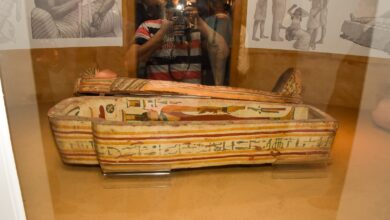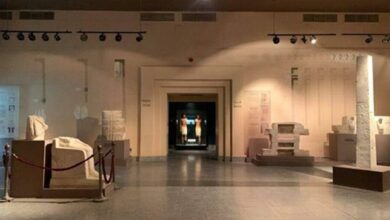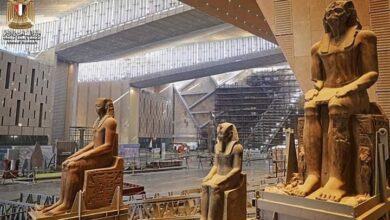Earlier this month, the Ministry of State for Antiquities (MSA) announced that it would be establishing the first Institute of Museology in Egypt after a funding proposal put forth to USAID was revisited and moved to the next phase of development.
“We’ve been talking to USAID for a year and a half about opening a museology school in Cairo,” states Ramadan Hussein, a senior archaeological supervisor at the MSA. “After the revolution, they’ve shown new interest in the project and decided to move forward with funding.”
Despite the large number of museums that the country enjoys, Egypt’s museums suffer from a shortage of qualified personnel at the senior management level. This has been often reflected in poor exhibition design and resource management, as well as increased reliance on foreign experts.
“Some of the staff is bright and educated, but for many it’s just another job which could be incredibly damaging to the antiquities and museum industry at large,” explains Lisa Sabbahy, an Egyptology Professor at the American University in Cairo.
In attempt to reinvigorate the museums’ lackluster condition, the MSA Institute of Museology plans to provide a two-year intensive training program on museum curating, exhibition design and antiquity collection management, including proper documentation of exhibits, as well as fundraising and on-site business management. The museums are envisioned to ultimately function as independent cultural institutions rather than publically funded ones.
Enrollment at the institute would be compulsory for staff members wishing to retain a senior position in museum management or curating, Hussein explained, adding that the first students to be targeted are current museum employees.
Museology students will also be learning how to develop lecture series and put together children workshops in an attempt to attract a wider audience base, especially Egyptians, who often don’t constitute a significant percentage of museum visitors.
“The ministry has an ambitious plan to internally transform Egypt's museum sector,” Hussein told Al-Masry Al-Youm. “Almost every governorate already has a local museum. When you establish so many, you need to pay serious attention to the human element, as well as the overall accessibility of the institutions.”
“We realized that it’s not about building huge museums, but renovating old ones with proper personnel to make them functional.”
Once funding is provided by USAID, the school will commence immediately at one of the ministry’s various facilities in Cairo. The ministry will simultaneously work on renovating the Casdagli Palace in Downtown Cairo which will ultimately become the institute’s home. Graduate programs in museology would then be developed and offered to graduates of the training courses.
The scope of the programs, however, remains speculative as the ministry is still seeking the collaboration of professional organizations, such as the American Research Centre in Egypt, for curricula development.
“If the ministry manages to bring in people who know what they’re doing and offer proper curricula, I think it’d be fabulous,” Sabbahy says.
Egyptian archaeologist Nora Shalaby agrees that the school has huge potential. "For the institute to be effective, however, it needs to be managed by professionals who are aware of the of old system's shortcomings and who are willing to introduce massive changes,” she told Al-Masry Al-Youm, adding that if the new school operates anything like the MSA, there’s little hope for development. For years, the ministry has employed outdated curatorial and management approaches.




